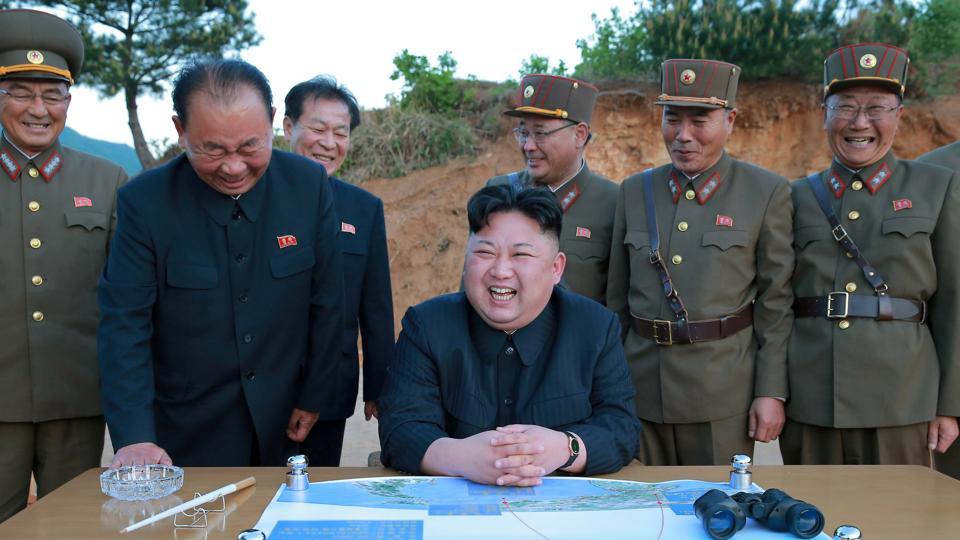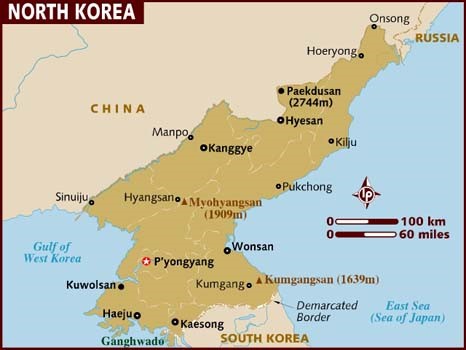Sanctions on North Korea
December 25, 2017 | Expert Insights

The UN security council has unanimously approved tough new sanctions on North Korea. This has been in response to its latest launch of a ballistic missile. Experts note that this was its most potent missile and it is capable of reaching anywhere on the US mainland.
Background
In 2006, after North Korea conducted its first nuclear test, the UN Security Council passed harsh economic sanctions on the region. Resolution 1718 in 2006 demanded that North Korea cease nuclear testing and prohibited the export to North Korea of some military supplies and luxury goods. In addition, the UN Security Council Sanctions Committee on North Korea was established, supported by the Panel of Experts.
However, undeterred, North Korea has continued its nuclear programme. In 2017, it conducted over 20 missile test launches and conducted its sixth nuclear test. It was the nation’s most powerful test yet. According to reports, the country detonated a hydrogen bomb that could be mounted on an intercontinental ballistic missile.
In 2017, United Nations has repeatedly imposed new sanctions on North Korea. There is now a ban on textile exports and a call to reduce oil imports by 30%. There is also a ban on hiring North Korean workers overseas. There are currently 100,000 North Koreans employed outside of the country. North Korea’s economy would be particularly hit as its trade with China has also been affected. The combined value of North Korea’s 2016 export to China, of coal, iron-ore, lead-ore, and seafood, all of which are now banned, was almost $1.5 billion. This is about 60% of its total exports.
Analysis

The UN security council has unanimously approved tough new sanctions on North Korea. This has been in a response to its latest launch of a ballistic missile. Experts note that this was its most potent missile and it is capable of reaching anywhere on the US mainland. The missile was test launched in November 29th, 2017.
China and Russia, North Korea's main trading partners, voted in favour of the resolution. These sanctions will reduce the nation's petrol imports by up to 90%. US President Donald Trump took to Twitter to note, “The United Nations Security Council just voted 15-0 in favor of additional Sanctions on North Korea. The World wants Peace, not Death!”
The US ambassador to the UN, Nikki Haley, said the sanctions sent an "unambiguous message to Pyongyang that further defiance will invite further punishments and isolation". Chinese envoy Wu Haitao said the vote "reflects the unanimous position of the international community" on the issue of North Korea's weapons programme.
Britain’s UN ambassador, Matthew Rycroft, said the security council was sending “a very strong united signal to the North Korean regime that enough is enough, that they must stop their nuclear program and they must stop their intercontinental ballistic missile program”.
Kelly Magsamen, a former deputy assistant secretary of defense for Asian and Pacific security affairs and said, “At the end of the day, we are either going to have a negotiated outcome, or some sort of scenario where either the US decides to use force, or we are in a containment and deterrent scenario.”
Assessment
Our assessment is that North Korea in the past has heavily depended on China for its oil imports. The country had exported 25 million tons of coal from China in 2015. An economic sanction on oil is likely to cripple the isolated nation. However, it may still not convince North Korea to shut down its nuclear programme and enter negotiations with the US. We believe that North Korea might try and resort to liquefying coal. The nation has rich reserves of coal and thus will be able to make up to the oil. The question now remains on whether North Korea will have the financial and technical resources to liquefy coal indefinitely.








Comments